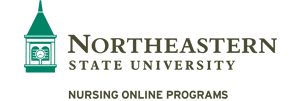While functioning as a cohesive team is an important aspect of nursing, the ability to operate independently, think progressively and inspire others to do the same are traits increasingly sought by employers. As a substantial portion of nurses near retirement and an older, more chronically ill patient population requires specialized care, the demand for highly qualified nurse leaders rises. For many, earning a Bachelor of Science in Nursing (BSN) represents the first step toward a career in leadership.
Why Is Demand Growing for BSN-Prepared Nurse Leaders?
There are several factors contributing to the growing demand for BSN-prepared nurse leaders. The 2010 Future of Nursing report by the Institute of Medicine (IOM), now known as the National Academy of Medicine (NAM), called for 80 percent of nurses to earn a BSN by 2020 in order to have the skill sets necessary to assume leadership roles and transform the state of healthcare. As a result, employer demand for BSN-prepared nurses has increased, according to the American Association of Colleges of Nursing (AACN), with 79.6 percent expressing a strong preference for nurses with the degree.
A bachelor’s degree has become the minimum education required by most employers — not only for nurses but also for those who lead them. Eligibility for Magnet status, a designation awarded to facilities known for their nursing excellence and exceptional patient care outcomes, is contingent on all nurse managers holding a BSN or higher degree.
Nurse retirements and interest in leadership have been influential as well. According to a 2017 AMN Healthcare survey, 82 percent of nurses say that more nurse leaders are needed. However, 61 percent say they would not consider a leadership position, leaving a potentially significant shortfall in available managerial candidates as 73 percent of Baby Boomer nurses planning to retire are expected to do so by 2020.
What Skills Do Nurse Leaders Need?
Nurse leaders require a unique and varied skill set. The American Nurses Association (ANA) has developed a model of core competencies that all nurse leaders should possess including:
Communication. Nurse leaders must work closely with a wide range of employees, including nurses, physicians and other clinical and non-clinical staff. They are also in frequent contact with patients and family members, in addition to serving as a liaison to executive management and board members. Strong interpersonal, written and public speaking skills help nurses communicate effectively and defuse conflicts or tense situations.
Adaptability. The dynamic nature of nursing means that nurse leaders are likely to be assisting at the bedside one moment and navigating a computer issue in the next. Nurses who think on their feet, quickly assess situations and seamlessly transition to the most critical tasks will have an advantage over those who are unable to adapt quickly to changing circumstances and environments.
Project management. Nurse leaders are involved in virtually all aspects of patient care, as well as in creating vision and strategic growth policies, establishing employee development initiatives, and planning departmental budgets. Strong critical-thinking, problem-solving and active listening skills are essential to success in the position, as is the ability to simultaneously balance multiple responsibilities.
How Should Nurses Prepare for Leadership?
Earning a BSN is the primary way for nurses to begin working toward a career in leadership. The BSN coursework refreshes bedside and clinical skills, while digging deeper into nursing theory, evidence-based practices and the expectations and responsibilities of professional nurses. It also positions nurses to pursue master’s or doctoral degrees, which are required for some executive leadership roles such as chief nursing officer (CNO).
The online RN to BSN program at Northeastern State University (NSU) has a course dedicated to nursing leadership and management in addition to covering the topics listed above. The flexible format allows nurses to complete the degree in as few as 10 months.
Keeping up with current trends and research is another crucial factor in your success as both a nurse and prospective nurse leader. Engaging in professional development activities is instrumental in bridging any gaps in competencies. For example, the ANA’s Nursing Knowledge Center offers several leadership and management webinars and e-learning courses to round out and enhance your existing knowledge.
Leading to Leadership
If you are interested in a career in nursing leadership, earning a BSN is the first step on the path to that goal. Besides providing a foundational understanding of leadership and management techniques, the NSU online RN to BSN curriculum helps fine tune key skills like communication and problem-solving. As the demand for nurse leaders grows, employers will likely look to BSN-prepared nurses to fill these roles.
Learn more about the NSU online RN to BSN program.
Sources:
ANA: ANA Leadership Institute Competency Model
AACN: Employment of New Nurse Graduates and Employer Preferences for Baccalaureate-Prepared Nurses


